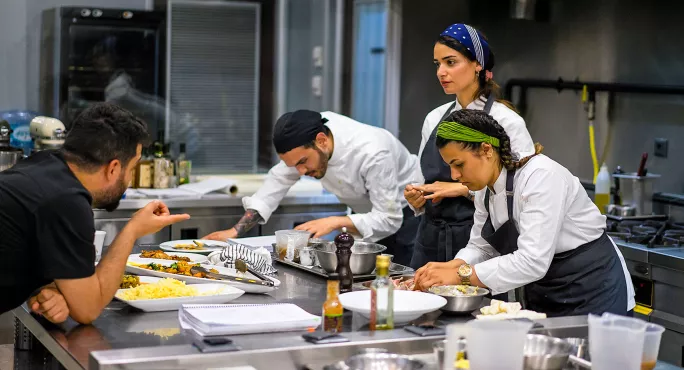
How we can prove that a student is not ‘destined to fail’

Just before writing this, I went on a stroll around my neighbourhood and bumped into a 22-year-old friend of mine who I’d consider one of the most inspiring people I’ve ever met.
He’s articulate, funny, intelligent and honest, and he’s doing really well - enjoying work (he’s a bus driver), with ambitions to gain qualifications and start the path to being a pilot.
Rewind seven years and you would have been faced with a very different person, because this young man was at that point the most absent young person in Scotland, poverty and trauma having destroyed his ability to feel safe at home or school.
Meeting him then, I would have assumed his lived experience of the care system and his minimal attendance would translate into lived experience of the criminal justice system and minimal opportunity, as it does for many. What happened instead was that his guidance teacher referred him to a brand-new initiative.
- From the archive: Developing the Young Workforce will define Scottish education
- Data: Why are more Scottish students leaving school after S4?
- News: Exclusions policy to be reviewed amid school violence
- Policy: Presumption of mainstream schooling for ASN pupils is ‘wrong’, hear MSPs
- Funding: ‘Budget cuts could affect every one of Scotland’s children’
Scran Academy was founded from the same landscape of lived experience that my friend faced; we are a grassroots response to youth poverty, taking a flat refusal to accept the inevitability that certain young people from certain places are destined to fail.
We work with young people from S4 upwards, co-developing their education and providing them with confidence-building experience through our successful catering business.
When my friend first got involved, he found quite a different atmosphere from what he was used to at school. Young people and adults felt like equals; they worked, chatted and ate together. There was agency in how he structured his day, and he cooked something every time, gaining skills that he could make use of.
Beyond students’ comfort zones
He was trusted, too; trusted with practical tasks, a kitchen knife, a food budget, a catering job.
It wasn’t easy. He was challenged and spent a lot of time outside his comfort zone.
He also challenged back, his life wasn’t easy either, and at times he could be difficult. But the trust of his peers meant he was able to bounce back, building his resilience and confidence to a point where he was able to achieve on his own terms.
In those seven years since he was first involved, Scran has grown in size and scope. We have got ourselves a café and a catering truck - the Scran Van.
We have become an SQA-approved centre, delivering a range of qualifications including mental health and wellbeing, enterprise and a National Progression Award in bakery. We can independently provide both accreditation and direct industry experience for young people.
Alongside our school partners, we work with collaborators across sectors, including the NHS and local youth groups, providing an ecosystem of services for young people. Our aim is to be both a trusted provider and a positive disruptor, reshaping systems to meet young people’s needs.
Biggest upheaval of recent times
These needs look very different now from when we started. Those in S3-4 now were the transitional cohort when Covid-19 struck.
We know that then the poverty-related literacy and numeracy gap at P6-7 was at its widest for years, and the young people it impacted suddenly faced the biggest upheaval to their education society has seen in recent times.
It’s no wonder that these young people find it harder than ever to belong in classrooms. Disengagement, low resilience and internal truancy are mere symptoms of this.
We need to lavish love, care and attention on this cohort, but given current pressures in and on schools, this is not going to happen, and so the behaviours we see will be modelled for years to come.
Schools need help to meet ASNs
Schools alone are not able to safely meet the emerging needs of our young people, and we are long past crisis point on this. Teachers see the differences that projects such as Scran make for individuals, but as it stands we can’t touch the sides on the number that need support.
One teacher told me that 52 per cent of their (mainstream) school roll have identified additional support needs, which says nothing to those whose needs go unidentified.
We need to be able to work with more young people, which means we need resource. Pupil Equity Fund streams and partnerships only go part of the way.
Scran Academy, and organisations like us, need consistent, long-term funding to provide the critical support that our young people need and deserve.
Will Bain is chief executive of Scran Academy, an Edinburgh-based social enterprise that helps students make the transition from the classroom to training and work experience in the catering sector
For the latest Scottish education news, analysis and features delivered directly to your inbox, sign up to Tes magazine’s The Week in Scotland newsletter
You need a Tes subscription to read this article
Subscribe now to read this article and get other subscriber-only content:
- Unlimited access to all Tes magazine content
- Exclusive subscriber-only stories
- Award-winning email newsletters
- Unlimited access to all Tes magazine content
- Exclusive subscriber-only stories
- Award-winning email newsletters
You need a subscription to read this article
Subscribe now to read this article and get other subscriber-only content, including:
- Unlimited access to all Tes magazine content
- Exclusive subscriber-only stories
- Award-winning email newsletters
- Unlimited access to all Tes magazine content
- Exclusive subscriber-only stories
- Award-winning email newsletters
topics in this article



